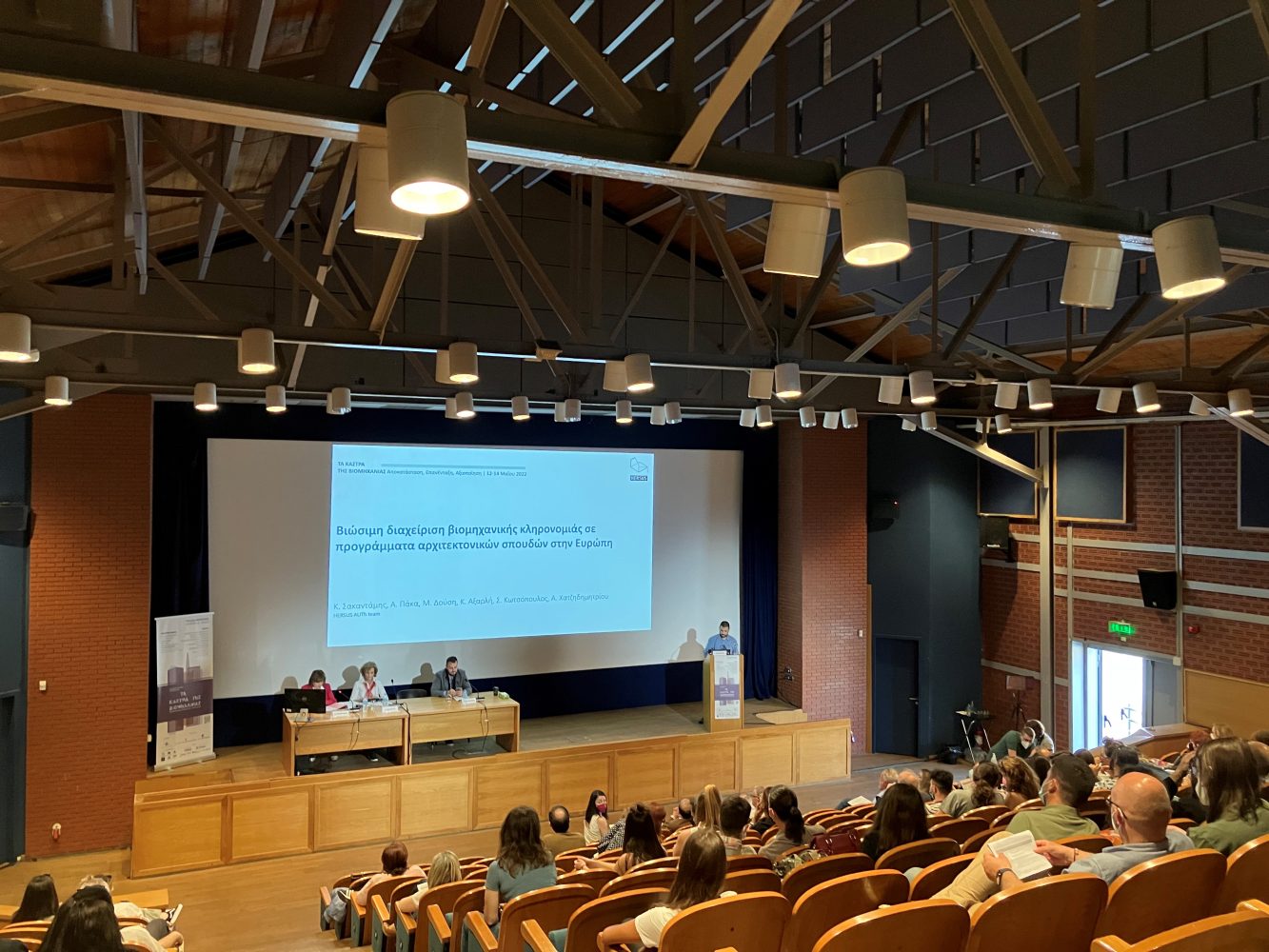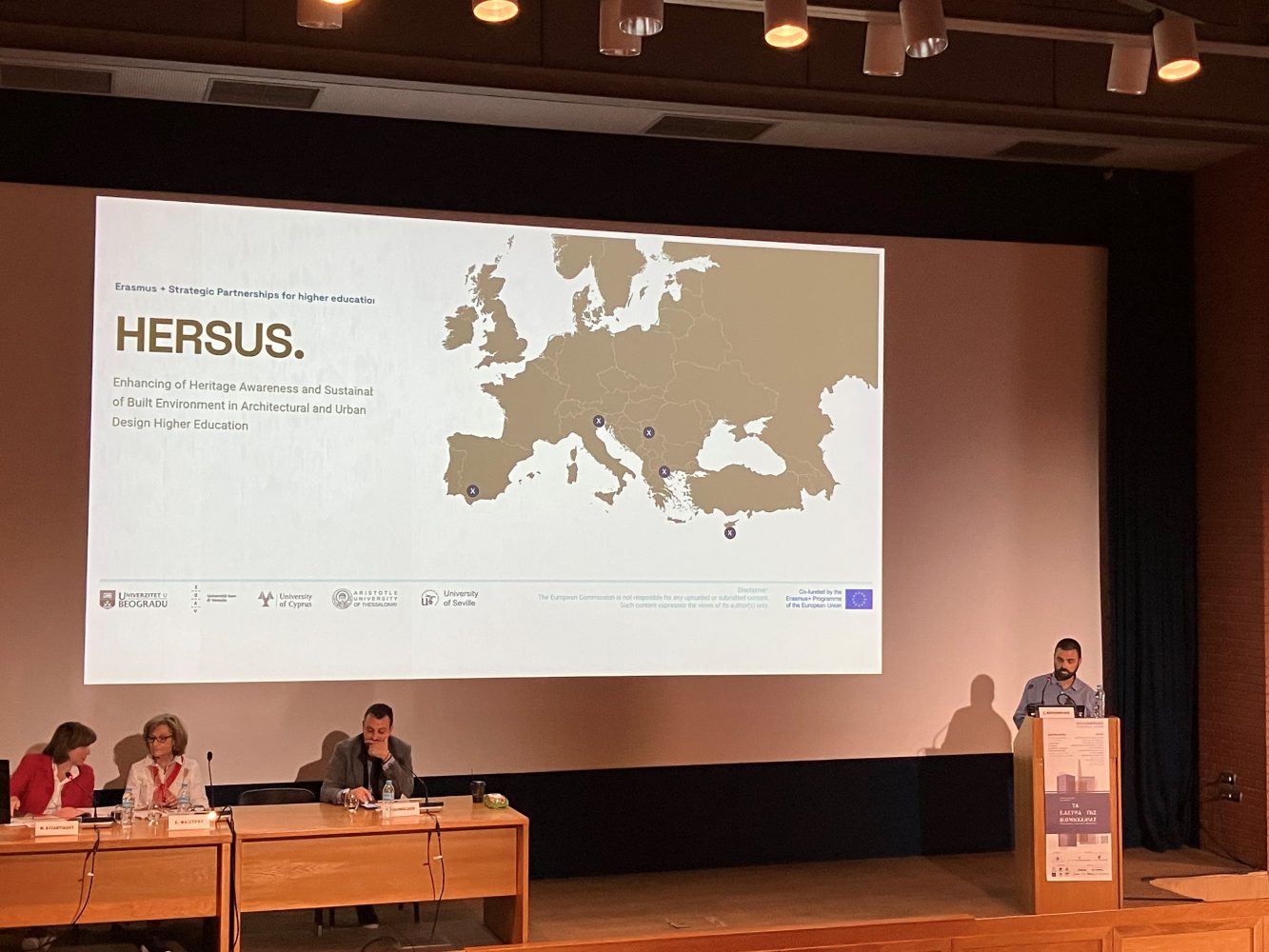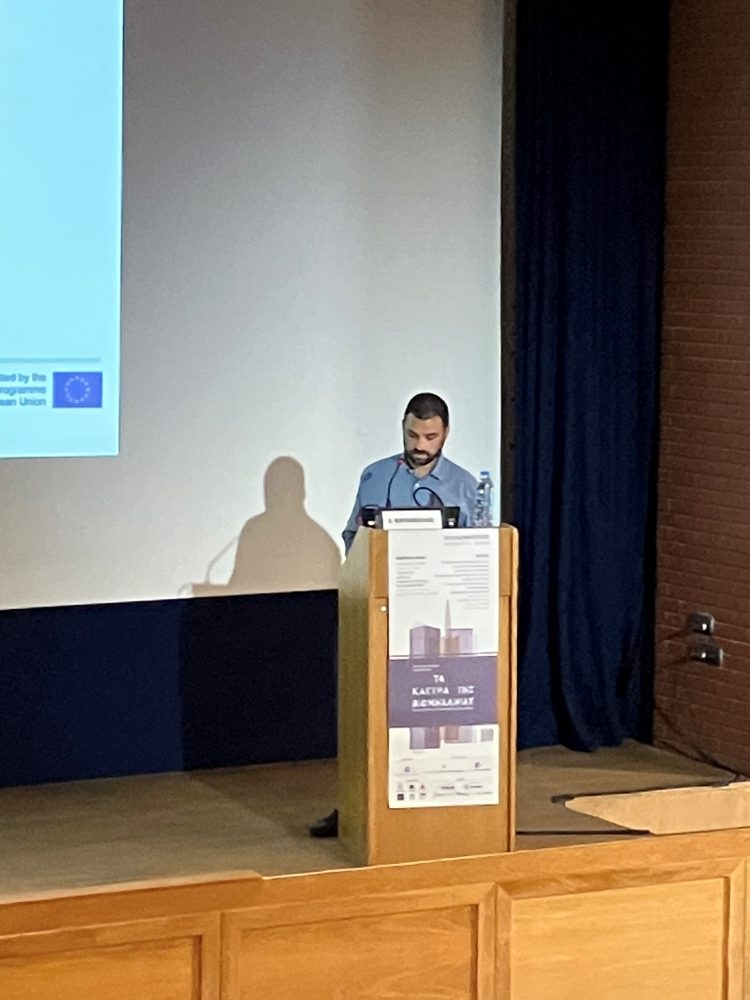Sustainable management of industrial heritage in postgraduate programs in Europe
Paper presentation at Castles of Industry, Panhellenic Conference on Architecture, 12-14 May 2022, Thessaloniki, Greece




The paper ‘Sustainable management of industrial heritage in postgraduate programs in Europe’ by the AUTH HERSUS team presented at the panhellenic architectural conference Castles of Industry, on the 13th of May, assesses the integration of methods for managing industrial heritage building stock on the basis of sustainable environmental design in architecture studies programs through the HERSUS research project. The first stage of the project, through the analysis of exemplary cases studies and study programs in the participating countries, revealed the intense and continuous implication of the participants with the conservation and sustainability of cultural heritage at multiple levels. In the first research stage, industrial heritage is highlighted as a part of cultural heritage and is encountered through concepts of certification of its role, restoration and reuse with current requirements and the enhancement of social cohesion. In education, the existing study programs, on which the research project focuses, include restoration of industrial buildings through sustainable design or the conservation of cultural heritage based on environmental social and historic criteria and high energy performance goals. They also include issues of restoration of the industrial heritage building stock in the urban or suburban environment. In the same framework, built case studies are analyzed as good practices and as teaching tools within study programs revealing with tangible results the delicate balance between cultural heritage conservation and the principles of sustainability in the built environment. The analysis also reveals the importance of the regulatory framework which transgresses the management of cultural heritage and the sustainability of the built and the natural environment and detects the necessity for further inclusion in the study programs as well as the need for coordination, renewal and updates based on the continuous evolvement of current developments.